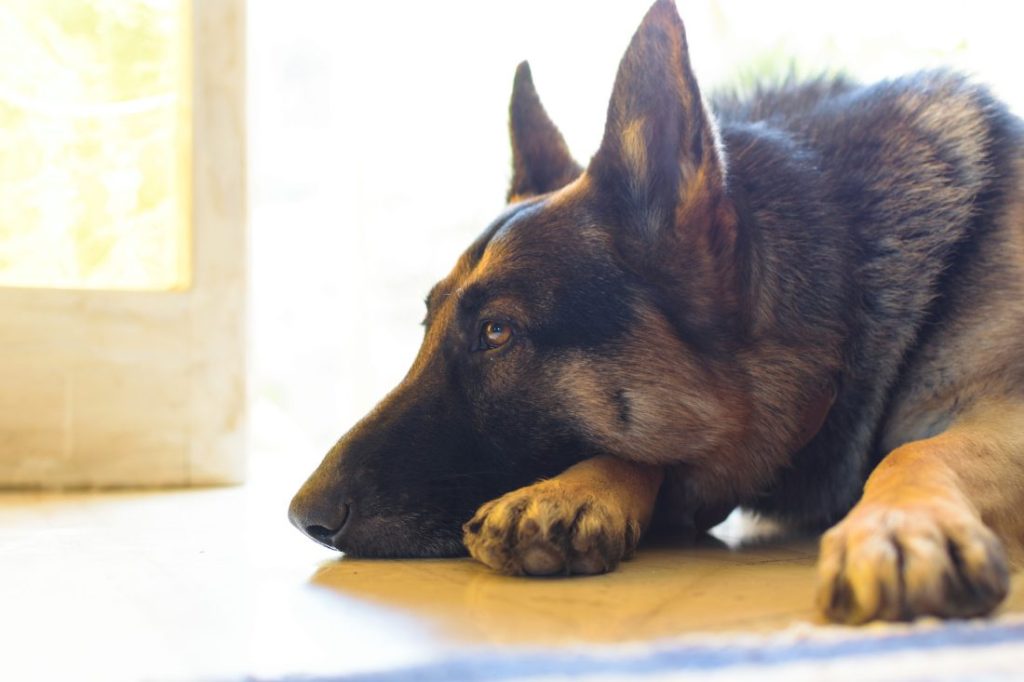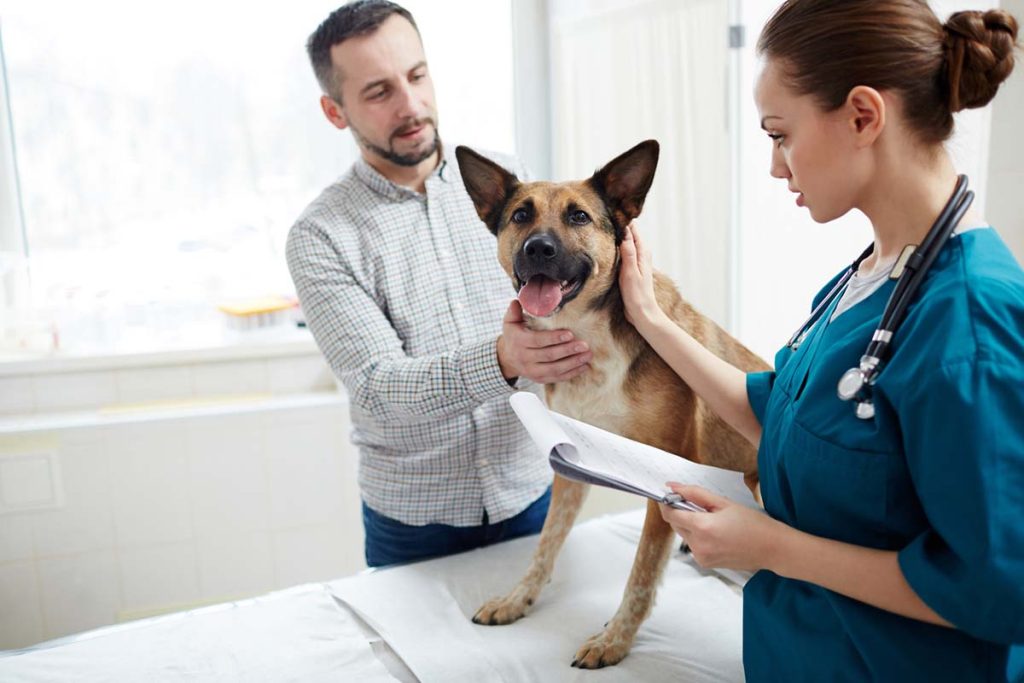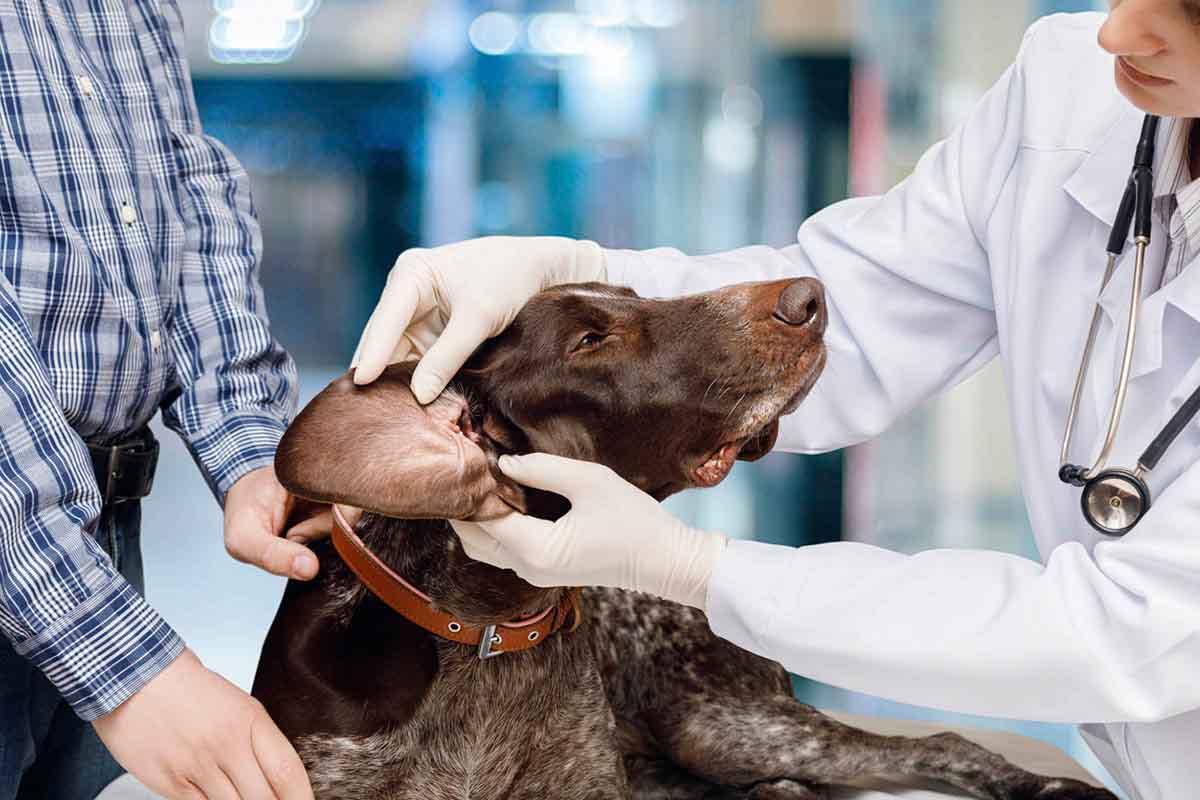Can Dogs Get the Flu?
Do pet owners have to worry about cases of dog flu? Yes, dogs can get the flu. Here's what pet parents need to know.
For us humans in the United States, it’s cold and flu season, but what about your furry friends? Do pet owners have to worry about cases of dog flu? Yes, dogs can get the flu.
As loving pet parents, animal health is an important topic for you. That’s why you should know about the symptoms of dog flu, how you can prevent it, and, if your best buddy does come down with this respiratory disease, how to treat it.
What Is Dog Flu?
Dog flu is also known as canine influenza, and it is the result of two influenza strains. The first is the H3N8 strain which originated in horses. The second is the H3N2 canine influenza strain that originated from an avian source.
Though both strains began in other species, as the virus mutated, it began to infect dogs. The H3N8 equine influenza strain has been around for more than 40 years, but it was only in 2004 that the virus ‘made the jump’ from horses to dogs.
The resulting canine influenza virus, or CIV, is highly contagious and is in most states in the U.S. Veterinarians initially feared it would be fairly lethal in dogs. However, if they have a healthy immune system, this flu virus is unlikely to kill your best friend. Most dogs that do die have some other serious illness they are battling. It has a mortality rate of somewhere between 1 – 5%.
Strains of the Virus
In 2015, there was an outbreak of a new strain of dog flu in Chicago. This new H3N2 strain of canine influenza was in Asia, but this was the first U.S. outbreak. As mentioned, it originated in birds and then made the jump to dogs.
With this strain, infected dogs could infect cats, too. While the initial outbreak was first detected in Chicago and a few provinces in Canada, in 2017, the University of Florida’s College of Veterinary Medicine identified an outbreak there. By mid-June of that same year, several other states reported it. Now, it is found in almost all states.
When compared to other respiratory infections, the H3N2 strain is more severe, particularly in dogs with a higher risk of infection. However, like the H3N8 strain, the risk of death is low with the H3N2 version.
What are the Symptoms of Canine Influenza?

As you might imagine, the symptoms of dog flu are similar to the symptoms of human flu. These include:
- runny nose
- eye discharge
- cough
- fever.
Because it’s a virus, dog flu doesn’t respond to antibiotic treatment. Your veterinarian might still recommend it to reduce the risk of secondary bacterial infections.
When the body is fighting off one problem, the immune system can become suppressed, and other infections can set in as a result. Bacterial pneumonia is a common one in dogs with a respiratory illness.
Another clinical sign of dog flu is that it doesn’t respond to cough suppressant therapy. The cough associated with canine influenza may be productive, meaning it is moist, or non-productive, meaning it is dry. It generally lasts for 10 – 21 days. You may find that your pup isn’t very interested in eating or doing much more than lying around during that time.
Although most dogs infected with the virus have mild clinical signs, those infected with the H3N2 strain of canine influenza have a greater risk of showing more severe symptoms. It is important to understand that CIV shows symptoms that are virtually identical to other respiratory infections, like kennel cough, for example.
That’s why it’s often mistaken for other infections in the canine infectious respiratory disease (CIRD) complex. This is why a DVM must check out your pooch so they can start treatment.
Of course, as with most diseases, dogs with heart problems or other respiratory conditions are at a higher risk for CIV. Additionally, certain dog breeds, such as Boston Terriers, Boxers, Pekingese, Pugs, and Shih Tzus, are at higher risk. This is because they are brachycephalic, meaning they have a flat face.
How Does CIV Spread?
As with human flu, canine influenza spreads via respiratory secretions. This means through coughing, sneezing, eye discharge, and nasal discharge. Additionally, it spreads by contaminated objects, including kennel walls, floors, water bowls, leashes, and even the clothing and skin of people in contact with infected dogs.
CIV can also spread through contaminated food. The virus can survive on skin and hands for 12 hours, on clothing for 24 hours, and on surfaces for as much as 48 hours. The incubation period — the period of time from infection to the onset of symptoms — for the virus is two to four days, but it is during this incubation period that dogs are most contagious.
Infected dogs are contagious for up to 20 days. This means that if your buddy develops symptoms, doggie daycare is out until he is better. It’s important because, since this is a relatively new disease, all dogs are susceptible to becoming infected. In other words, there is no naturally acquired immunity that has developed yet.
This also means that if your buddy is exposed to the virus, he will likely become infected and develop symptoms. There are a small amount of dogs — approximately 20 – 25% — that have what is called a subclinical infection, which means they show no signs of illness despite being infected. They are, however, still infected and contagious.
How Does Your Veterinarian Diagnose Canine Influenza?

Since CIV is similar in its symptomology to other canine respiratory infections, a veterinarian cannot diagnose it based on clinical signs. If your puppy is seen within the first few days of an infection, your vet can do a nasal swab and polymerase chain reaction (PCR) test for the virus.
The test looks for genetic markers of CIV, and if it is positive, your dog likely has the flu. However, after four days of the illness, the PCR results become less accurate, meaning there can be false negative results. In other words, the test would be negative even though your dog has the virus.
If this is the case, your veterinarian is more likely to use blood tests to look for CIV antibodies. Your dog’s body produces antibodies in response to the presence of the virus. The antibody levels are compared two to three weeks apart. If they rise significantly during that time, it means your dog has CIV.
In addition to confirming a CIV infection, your veterinarian may also run other tests, like X-rays and other blood work, to determine the severity of the infection.
How Is Dog Flu Treated?
According to the American Veterinary Medical Association (AVMA), most of the time, as with almost all viral infections, the treatment is supportive in nature. Keep your buddy warm and dry and isolate them from other dogs and cats in your household.
Additionally, he needs to be fed a high-quality diet, and he should have access to plenty of water so that he can stay well-hydrated. So keep those water bowls full! Hydration and good nutrition are critical for helping your best friend mount a strong immune system response to the infection.
The more you can help him with that, the faster he will recover. It is possible, even with a mild case of CIV, that your dog would develop a secondary bacterial upper respiratory infection. If this is happening, you’re likely to see a thick, green mucous discharge from the nose.
In this case, your dog might need broad-spectrum antibiotics to treat the bacterial infection. If he is not treated for something like that promptly, it could develop into pneumonia. Pneumonia might require hospitalization, IV fluids, and other medications to treat.
Most dogs that develop a CIV infection do recover within two to three weeks. Experts recommend they remain isolated for four weeks to prevent further spread. That’s true even if they are no longer showing symptoms.
What Should You Do to Care for an Infected Dog?
One of the most important things you should do for your infected dog is to isolate him from other pets. That means no trips to the groomer, dog parks, doggie daycare, or even going for walks where he is likely to contact other dogs.
Additionally, you’ll want to thoroughly disinfect clothing, equipment, floors, and your hands with soap and water after having contact with him. This is true for most dogs with signs of respiratory illness.
As with any problem, you should follow your veterinarian’s recommendations for specific treatments. And as already mentioned, keep him well-fed and well-hydrated.
Can People Get the Flu from an Infected Dog?
CIV is closely monitored by the Centers for Disease Control (CDC). To date, there is no evidence it can spread to humans. That means you can definitely give your best buddy plenty of love while he recovers without worrying about infecting yourself or other people in your family.
As mentioned previously, however, cats can contract the virus from dogs and from humans who have been in contact with an infected dog. That means you’ll want to take care if you have a feline friend as part of your family.
You should restrict contact between the infected dog and your cat. Take care to clean your hands and clothing after you’ve been in contact with the infected dog. While it is rare for the virus to spread to cats, it’s still a good idea to keep them isolated.
Is There a Canine Influenza Vaccine?
There are currently two approved vaccinations for CIV in the United States. This is something you should do if you have a dog that is at a higher risk for developing severe symptoms associated with the viral infection.
That means any dog with respiratory or heart conditions, as well as those dog breeds with a flat face. Additionally, if you have a show dog or a dog that is regularly boarded or frequents dog parks, it is advisable to vaccinate them for CIV.
There have been no reported problems with the CIV vaccination, but you should base your decision to vaccinate on your dog’s risk level and lifestyle. If your dog is an indoor dog that is rarely exposed to other dogs, then he is at a lower risk for contracting the disease.
But if an outbreak occurs in your area, you may still want to vaccinate him. You should realize, however, that the vaccination cannot completely prevent the disease. The immune response your dog mounts to the vaccine may not protect him completely. However, vaccination will reduce the severity and duration of symptoms.
As always, it’s important to talk with your veterinarian about the pros and cons of vaccinating against canine flu.
JustFoodForDogs Immune System Support Recipes
We commit to providing healthy nutrition to every dog for a longer, happier, and healthier life. Pet parents can speak with a nutrition consultant to develop a customized meal plan that supports your dog’s immune system.
Additionally, we have supplements to help support your dog’s immune system. Our veterinarian-prescribed meals and custom diets are formulated for your dog’s nutritional needs. Schedule a consultation today!
This content is for informational use only and does not replace professional nutrition and/or medical advice, diagnosis, or treatment. It is not a substitute for specific nutrition and/or medical recommendations. Please talk with your veterinarian about any questions or concerns.








